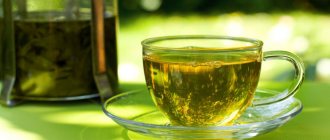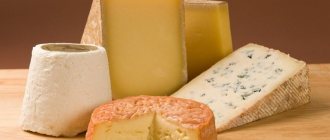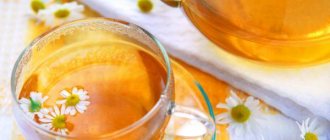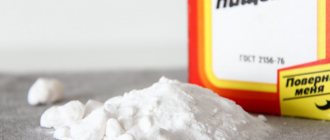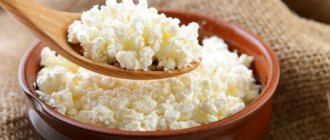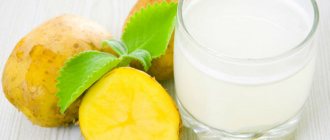Acute pancreatitis
The diet prescribed for the acute form of the disease involves the introduction into the diet several days (usually three) after a pancreatic attack of fruit juices, previously diluted with boiled water. The permission does not apply to lemon - with equal amounts of water and juice, with a predominance of water, there will be harm. It is better to use pumpkin or potato juices that do not contain any contradictions.
Lemon for acute pancreatitis is strictly prohibited. The fruit contains 8% citric acid, which is prohibited from digestion by the tense pancreas. The figure is too high. Thanks to this chemical, lemon exhibits an extremely sour taste. When citric acid enters the gastrointestinal tract, the pancreas produces excessive amounts of digestive enzymes. The gland needs rest and relaxation; such intense work is an unaffordable luxury.
Even after the attack is over, consuming lemon in any form is not a good idea.
What substances prevent people with pancreatitis from eating lemons?
Lemon contains other substances that are prohibited for use in case of pancreatitis and are responsible for the taste and smell:
The beneficial vitamins and minerals contained in lemon (B vitamins, magnesium, vitamin C) make the body and gastrointestinal tract work many times more actively. The pancreas must be in a relaxed state during illness; processing lemon does not allow this.
Lemon, like most citrus fruits, exhibits juice-like properties. When hydrochloric acid enters the body, it is processed faster due to the secretion of gastric juice. With a healthy metabolism, the process is acceptable; with pancreatitis, this is dangerous. The presence of these substances in the body has a harmful effect on the pancreas.
Lemon for pancreatitis of the pancreas - is it possible or not?
Lemon for pancreatitis is included in the category of prohibited foods. Although citrus fruit contains many valuable components, it must be consumed very carefully.
A small amount of the product is allowed to be eaten at the stage of stable remission. In case of exacerbation, adding lemon to prepared dishes is strictly prohibited.
How does drinking lemon affect patients with pancreatitis?
Citrus fruits contain a large amount of substances that are needed for metabolic processes in the body. Their benefits are due to the following components:
- vitamins – A, E, C, PP;
- phytoncides and essential oils;
- microelements – calcium, iron, magnesium;
- pectins – cleanse the liver and body of toxic substances;
- complex carbohydrates;
- sugars that are easily digestible are fructose and glucose.
Thanks to their unique composition, citrus fruits provide a whole range of beneficial effects. They strengthen the immune system, relieve inflammation, and provide an antioxidant effect. However, these same components can also harm the affected organ:
- Acids have a stimulating effect on the epithelium of the digestive organs. As a result, the synthesis of bile and pancreatic juice increases. In healthy people, these processes help improve digestion. However, with pancreatitis they provoke pancreatic necrosis. This disorder is accompanied by the destruction of gland tissue by proteolytic enzymes. This is due to a violation of the outflow of secretions into the duodenum.
- Sugar increases the load on the endocrine part of the pancreas - the islets of Langerhans. They synthesize the hormones insulin and glucagon. In case of inflammatory damage, an increase in sugar content is dangerous due to disruption of the endocrine function of the pancreas. As a result, the risk of diabetes increases.
- Allergens provoke unwanted reactions in the form of skin rashes. In the presence of pancreatitis, the condition of the organs worsens. When the pancreas is damaged, swelling increases and the functions of the organ are further impaired.
- Plant fiber activates peristalsis of the digestive organs. This manifests itself in the form of a choleretic effect, which is dangerous in case of relapse of cholecystitis or cholelithiasis. In addition, the motility of the digestive organs increases. This causes flatulence, pain, diarrhea, and vomiting.
The fruit contains 8% citric acid, which is prohibited from digestion by the tense pancreas.
After achieving stable remission, citrus fruits can be gradually introduced into the diet. But you need to do this correctly, following these recommendations:
- pancreatitis must be in stable remission - it must last at least 6 months;
- you should choose exclusively fresh and ripe fruits - they should not have mold or rot;
- in case of damage to the digestive organs, the pulp of the fruit should be cleared of skin, seeds, partitions - these fragments contain a lot of phytoncides, essential oils and other elements that cause relapses of the disease;
- You can eat citrus fruits only after meals - eating lemons on an empty stomach provokes irritation of the mucous membranes;
- Before use, you should make sure there is no allergy.
Lemons for acute pancreatitis
In acute cases, a special diet is prescribed. From 3 days after the onset of attacks, it is allowed to include fruit juices diluted with water in the menu. But with this diagnosis, lemon juice is strictly contraindicated.
This is due to the high content of citric acid, which has an irritating effect on the diseased organ. His cells begin to intensively produce enzymes. This causes complications and creates difficulties with therapy.
Lemon also contains components that are responsible for its aroma. These include limonene, geranyl acetate, citral. These substances have an irritating effect on the pancreas.
Lemon for acute pancreatitis is strictly prohibited.
Lemons for chronic pancreatitis
Chronic pancreatitis implies serious dietary restrictions. It is recommended to completely exclude lemons from the menu. It is prohibited to consume even those dishes in which citrus fruits are present in small quantities. Tea with lemon is also prohibited.
Avoid baking with citrus fruits or using them for sauces and marinades.
It is allowed to include the product in the diet only during a period of stable remission. This can be done no earlier than six months after the last symptoms of the pathology have been eliminated.
What can you replace lemon with?
The main property of lemon is its high content of vitamin C. The product is often added to tea to cope with viral infections or prevent their occurrence. Other sources of vitamin C include apples, pineapples, and black currants.
If you have pancreatitis, you should follow a special diet. It should include the following products:
- yoghurts;
- crackers;
- olive oil;
- vegetable stew.
Vegetable stew
You can also eat cucumbers, and how to read cucumbers correctly for pancreatitis.
Contraindications
Lemon for pancreatitis can provoke a serious allergy. This product increases the amount of free histamine in the body. This is fraught with severe tissue swelling and muscle spasms.
In addition, contraindications to the use of the product are associated with large amounts of sugar.
Diet No. 5 involves reducing the consumption of this product. Thanks to this, it is possible to reduce the load on the diseased organ, which is forced to produce insulin. If you do not follow this recommendation, there is a risk of developing diabetes.
What substances prevent people with pancreatitis from eating lemons?
Lemons contain special substances that give the fruit a distinct taste and smell. These include:
- limonene;
- geranyl acetate;
- citral.
These substances increase the load on the digestive organs. In addition, lemons have a juice-like effect, which is especially dangerous for inflammation of the pancreas.
Lemon for pancreatitis belongs to the category of prohibited foods. Eating this citrus fruit can lead to a serious exacerbation of the disease.
Chronic pancreatitis
The chronic form does not allow you to enjoy overseas citrus fruit. If you really want it, with reservations you are allowed to try dishes that include lemon in small quantities. Lemon fruit is not eaten dry.
Typical dishes with lemon include:
- Tea with lemon. Firstly, you should not brew the drink strong, and secondly, a small piece of lemon may be a burden to your pancreas. It's better not to think about sugar.
- Fish dishes. Many housewives, when preparing fish, do not forget to use lemon to add flavor. Patients with pancreatitis should not eat such dishes. Fish can be boiled - perhaps the food will taste different, but the pancreas will say “thank you.” The same applies to meat.
- Confectionery. When purchasing a product in a confectionery shop, it would be a good idea to ask the seller whether citric acid was used in the preparation. In the store you will have to carefully study the composition printed on the label. Citric acid is not one of the prohibited substances that manufacturers deliberately want to hide from the eyes of the consumer; it is difficult to be deceived in the study.
- Marinades. Marinades often use products (seasonings) that are undesirable for pancreatitis. It is better to pass by without being interested in the composition, in the absolute certainty of the harm of pickled products.
- Sauces. They are used for two reasons: either to sweeten it or, conversely, to make it spicier. Both options imply the presence of harmful substances in the product.
Drinks containing lemon in the recipe are prohibited.
When visiting or in a restaurant, when looking at a suspicious dish that includes lemon or parts of the fruit, do not be afraid to tell the truth about the prohibition of lemon. Remember, even a drop of lemon juice can trigger a new attack!
Doctors do not recommend drinking lemon in small quantities. If it seems to the patient that the pancreas is able to withstand it, try it. If the result is negative, you should not try again.
To experiment with the introduction of new products, it is advisable to wait for a stable period of remission - the known medicinal qualities of lemon for pancreatitis do not help. If the pancreas is calm and functioning normally, an attempt is allowed.
Regarding diet, consumption of lemon, and other products, you should consult your doctor. The doctor is able to competently weigh the pros and cons, based on individual indicators and the course of the disease. If the doctor says that lemons are strictly prohibited in any form, obedience is required, preventing new pain and attacks.
What can you replace lemon with?
There are known products that easily replace lemon. The main property of the fruit is its high vitamin C content; pieces are put into tea to get rid of colds. Similar products include black currants, pineapples, and apples.
Doctors recommend following a diet that includes:
- crackers;
- natural yogurts (prepared yourself is a priority);
- olive oil (great replacement for lemon juice and mayonnaise when you need to dress a salad);
- vegetable stew.
Diet planning for pancreatitis is not always general. The situation may vary greatly from patient to patient; any product or substitute should be discussed with a doctor or nutritionist.
The pancreatic diet is not considered too ascetic. There will be products that bring genuine pleasure. The main thing is not to put large portions on a plate, not to fry and to do without spices.
Avoiding pancreatitis - try to avoid lemon.
One of the most common factors that leads to the development of pancreatitis is poor nutrition with an excess of spicy and fatty foods, as well as alcoholic beverages. The symptom of the disease is girdle pain in the abdominal area, occasionally radiating to the lower back.
Important! If the disease worsens, you need to urgently seek help from a specialist.
Inflammation of the pancreas tissue is accompanied by an unpleasant condition - spasms, nausea, increased temperature, and pressure. During treatment, the patient is prescribed medications and a special diet. Since many fruits are included in the list of prohibited foods, patients are interested in whether or not lemon is ok for pancreatitis.
In case of chronic pancreatitis, the patient must constantly adhere to dietary nutrition
Lemon for pancreatitis is possible or not: is it allowed to drink tea with lemon?
Pancreatitis differs in the nature of the disease, acute or chronic.
The patient's condition in one form or another of the disease imposes its own restrictions on the organization of the food process, on the inclusion or prohibition of its individual components, and dictates more or less strict adherence to it.
Diet requirements are different for the following forms of pancreatitis:
- An acute form of the disease, accompanied by severe pain - the patient is not allowed to take any food in the first two days, only drinking plenty of mineral water, or alternating it with drinking rosehip decoction.
- This regimen is prescribed to suppress the secretion of gastric juice and its release into the duodenum, reduce pain, and remove toxins.
- On the third day of illness, food intake is allowed, subject to certain conditions - foods must be low-calorie, with the complete exclusion of fats, salt, as well as foods that cause increased secretion of gastric juice and gas formation.
- Acute form of the disease in the attenuation stage - gentle nutrition; the diet should include proteins, animal and vegetable; fats, carbohydrates, vitamins.
- Prohibition on hot, spicy, smoked, fried, salted dishes.
- Special requirements for food processing methods – chopping, steaming.
- Avoid foods that are extremely hot or very cold.
- Fractional meals in small portions.
- The chronic form of the disease, as a result of the acute course of the disease, or the primary one - a gentle diet, with fractional meals.
- Pay special attention to the consumption of protein foods, the daily ration of which is at least 130 grams, most of which should be represented by protein of animal origin.
- Fats, mostly animal fats, no more than 70 grams per day.
- Carbohydrates - up to 300 - 350 grams per day, boiled, steamed, crushed.
The general nutritional requirements for any form of pancreatitis are a gentle regimen.
Careful adherence to the selected diet helps to improve the patient’s condition, subsides inflammation, and increases hope for recovery.
Learn more about acute pancreatitis from the video provided.
Is it possible to use lemon for pancreatitis?
With pancreatitis, an inflammatory process occurs in the tissues of the pancreas. This occurs due to the fact that the enzymes secreted by the organ, instead of participating in the digestion of food in the intestines, undergo “early” activation in the gland itself and begin its destruction.
This condition is not only extremely painful, but in the absence of timely treatment it is simply dangerous.
One of the components of the treatment of pancreatitis is dietary nutrition, the main purpose of which is to ensure the rest of the organ and prevent mechanical or chemical irritation.
Such irritants, among others, are food products with a juice-like effect, which provoke the secretion of enzymes.
Lemon is absolutely contraindicated for pancreatitis, precisely because of this effect.
The beneficial properties of lemon, its widespread use both in its “live” form and for the preparation of various dishes, drinks, sauces, dressings, however, do not outweigh its negative irritating effect on the pancreas.
Even trace amounts of it in diluted form, for example, in juice, can provoke an exacerbation of both acute and chronic manifestations of pancreatitis.
It is unacceptable to use lemon for pancreatitis:
- With tea, even in the form of a thin and small slice
- As a flavor enhancer and when decorating fish, meat, vegetable dishes, various drinks, desserts
- In confectionery products, even in the form of zest
- When preparing marinades, sauces
- As a salad dressing
When eating out, it is worth finding out if lemon is included as an ingredient in any dish; if the answer is positive, you should refuse it.
Excessive precautions aimed at the absolute exclusion of lemon in the diet of patients with pancreatitis will avoid exacerbation of the disease.
Poor nutrition and lifestyle primarily affect the pancreas. It fails faster than all other organs of the gastrointestinal tract. Symptoms of her disease include pain, nausea, vomiting, and weakness. Taking painkillers does not bring relief.
After examination, a person is often diagnosed with pancreatitis. In its stage of progression, it means inflammation of the gland tissue. A strict diet is an effective treatment for pancreatitis. The diet involves the inclusion in the diet of not only permitted foods, but also methods of heat treatment and diet.
Each fruit or vegetable is viewed through the prism of not only its usefulness, but also its harm to the organ. A variety of plant fruits requires a filter based on harmfulness. Among them is one of the healthy fruits that requires an answer: is lemon ok for pancreatitis or not?
Lemon and pancreatitis
A diet for gastrointestinal inflammation is aimed at preventing exacerbation of pancreatitis and further destruction of the pancreas. Three days after the attack, it is allowed to expand the diet by introducing fruit juices diluted with boiled water, eating raw vegetables and fruits in small quantities. But is it possible to eat lemon if you have pancreatitis?
Good to know. Citrus fruit is a source of ascorbic acid and pectins, which help prevent malignant neoplasms and diseases caused by disruption of the cardiovascular system.
Despite the many beneficial properties of this miracle fruit, lemon and pancreatitis are incompatible. It is not recommended to consume lemon juice even in diluted form, since the highly concentrated acid it contains irritates the pancreas.
Citric and malic acids contained in lemon have a negative effect on the pancreas
Important! Lemon for pancreatitis complicates and complicates the treatment process.
During the period of exacerbation of the inflammatory process, lemon juice can adversely affect the state of the gastrointestinal tract:
- the pancreas can be affected by allergens contained in lemon juice;
- activation of insulin production can lead to disruption of carbohydrate metabolism;
- highly concentrated organic acids irritate the stomach and pancreas;
- The presence of light carbohydrates in juice provokes fermentation in the intestines.
Despite these factors, for pancreatitis, doctors allow tea with lemon, but only in weak concentration and with a sugar substitute. You can add milk, sugar-free fruit juices or rosehip decoction to the drink.
Lemon should not be added to hot water as its beneficial properties will decrease. To achieve optimal effect, the water must be cooled.
Lemon for pancreatitis: is it possible to eat and drink tea if you have pancreatic disease?
The inflammatory course in the pancreas is difficult for patients, because the disease is accompanied by excruciating pain in the peritoneal cavity, increased blood pressure, cramps, nausea, vomiting, changes in digestive processes and other digestive problems.
Based on the symptoms, treatment is carried out with the prescription of drugs, the use of traditional medicine recipes, and the obligatory adherence to proper nutrition for pancreatitis.
Many food products are removed from the table, initially these are individual fruits. For example, lemon for pancreatitis.
The reason for the ban is the presence of a large amount of acids that irritate the mucous membrane of the inflamed organ, which negatively affects the functionality of the gastrointestinal tract.
lemon for pancreatitis
Benefits of citrus fruits
Citrus fruits have a pronounced taste, pleasant aroma and sourness. In lime and lemon, the acidity in the taste will be predominant. Oranges and tangerines are sweeter, making them the most commonly consumed citrus fruits as dessert.
Citrus fruits are sources of vitamins and microelements:
- Vitamin C strengthens the immune system and is a powerful antioxidant.
- B vitamins (B1, B3, B6, B12) – provide energy metabolism and help the nervous system fight stress.
- Vitamin A is essential for vision and plays an important role in the formation of bone tissue.
- Vitamin E promotes tissue regeneration.
- Potassium is good for blood vessels and the heart.
Attention! In addition, citrus fruits contain phytoncides - substances whose action is similar to antibiotics, that is, they help the body cope with pathogenic bacteria.
What vegetables can you eat?
You can eat vegetables with pancreatitis. However, there are also contraindications. Some vegetables with cholecystitis tend to disrupt the functioning of enzymes and “hit” the liver, which, in turn, hits the pancreas. The consumption of the following products is absolutely contraindicated, regardless of the stage of inflammation or course of the disease:
- Spinach, sorrel. They contain unfavorable acids.
- Radish is “hard” for the pancreas and causes flatulence.
- Horseradish and garlic. In this case, garlic and horseradish will be detrimental to the body, causing flatulence and thereby enlarging the intestines, causing increased pain in the left hypochondrium with pancreatitis, and also causing an exacerbation of cholecystitis.
- Bell pepper - additionally loads the glandular cells, since a special enzyme is required that can break down the chemical compounds of this vegetable.
- Vegetables that promote flatulence are corn, peas, beans, asparagus, and white cabbage.
For cholecystitis and pancreatitis, you can consume in limited quantities:
- Tomato. Regarding the consumption of tomatoes, doctors have divided opinions, since fiber is capable of removing toxins from the gastrointestinal tract and also has a beneficial effect on the formation of the hemoglobin molecule. For the pancreas and liver, it is allowed to consume tomato juice in moderation, otherwise a relapse of exacerbation can be provoked. It is necessary to focus on the fact that tomato juice is a choleretic agent, however, if there is excessive secretion of bile, it will leak through the excretory duct of the “pancreas” and cause its inflammation, so you should be very careful in consuming tomatoes.
- Cucumbers. Is it allowed to eat cucumbers if you have liver and pancreas diseases? Of course, it is possible, for example, in hospitals they arrange fasting days, when a person eats up to 5 kg of cucumbers and nothing else.
- Cabbage. It was said above that you can’t eat white cabbage, but what varieties can you eat? It is allowed to add broccoli, cauliflower, and Chinese cabbage to the diet. But before you eat them, you need to answer the question, what culinary treatments need to be done? It is necessary to stew or boil the cabbage so that it is easily digestible and the expenditure of enzymes on its breakdown is minimal.
Lemon in treatment
Lemon for pancreatitis can be used for medicinal purposes. Although citrus fruit is classified as forbidden, it is beneficial in small quantities. Most often, the sour fruit is included in recipes that enhance the production of bile and cleanse the gallbladder and bile ducts.
Advice! To enhance the effect, it is recommended to do an enema of lemon juice diluted with water. Then lie on your right side with a heating pad placed in the liver area. After 20 minutes, empty your bowels.
Since chronic pancreatitis often leads to diabetes mellitus, it is necessary to adhere to a diet that excludes spicy, smoked and fatty foods
To prepare a medicine that stimulates the choleretic process, there are several recipes:
- Grind 1 fruit in a meat grinder, then mix with honey (100 g) and garlic (1 large clove). Take the prepared pulp every morning before breakfast, 1 tsp.
- Place the lemon in a container, add water and put on fire. After 5 minutes, squeeze out the juice and mix with the egg yolk. After consuming this mixture, do not eat for 3.5 hours. Repeat the procedure after 3 days, then after 6, 12 and 24.
To avoid attacks or other complications, it is important to consult a doctor before using traditional methods of treatment
Returning to a nutritious diet should be done gradually, following the instructions of a specialist.
Recommendations from experts
People suffering from pancreatitis should carefully read the ingredients of the products they purchase. Many confectionery products, mayonnaises, sauces and marinades contain citric acid. To avoid pain or complications, it is recommended to avoid such products.
If you have pancreatitis, you should not replace lemon with other sour fruits, since the acid has a juice-containing effect, which leads to increased secretion of digestive enzymes and slows down the healing process.
Many people who have problems with the pancreas are afraid to use lemon for pancreatitis, and they do the right thing. Despite the many vitamins with which the fruits of this citrus are enriched, its use is contraindicated in case of inflammatory diseases of the pancreas, as this can provoke an attack.
Contraindications
Lemon for pancreatitis can provoke a serious allergy. This product increases the amount of free histamine in the body. This is fraught with severe tissue swelling and muscle spasms.
In addition, contraindications to the use of the product are associated with large amounts of sugar.
Diet No. 5 involves reducing the consumption of this product. Thanks to this, it is possible to reduce the load on the diseased organ, which is forced to produce insulin. If you do not follow this recommendation, there is a risk of developing diabetes.
In acute form
To avoid sharp and aching pain, which often occurs with acute pancreatitis, lemon should be excluded from the diet. According to gastroenterologists, this need is due to the large amount of acids contained in its composition. They have a negative effect on the functioning of the pancreas, irritating the mucous membrane and provoking a sharp increase in the production of digestive enzymes by its cells. Because of this, complications may arise, leading to a delay in the treatment process.
In addition, lemon contains substances responsible for the strong citrus aroma. We are talking about limonene, citral, pinene and geranyl acetate, under the influence of which irritation of the gastric mucosa can also occur. The beneficial vitamins and minerals that make up citrus make the body work several times faster, and with pancreatitis, the inflamed pancreas must remain in a relaxed state, which is impossible due to the need to process lemon.
https://youtube.com/watch?v=qmBDBh9fdPs
During an exacerbation of pancreatitis, lemon juice can have a negative effect on the gastrointestinal tract:
- The pancreas may be exposed to allergens contained in lemon juice.
- Due to the activation of insulin production, carbohydrate metabolism may be disrupted.
- Highly concentrated organic acids cause irritation of the stomach and pancreas.
- Light carbohydrates contained in lemon juice provoke fermentation in the intestines.
What substances prevent lemon from
Lemon also contains elements that are not allowed to be taken in case of pathology, due to their aroma and taste.
- Limonene.
- Geranyl acetate.
- Citral.
Minerals and vitamins present in the product contribute to the active functioning of the body and gastrointestinal tract. And since with pancreatitis the organ needs relaxation, this conversion of lemon prevents this from happening.
beneficial and harmful properties of lemon
The fruit, like other citrus fruits, has a juice quality. In the case of a healthy metabolism, this is acceptable, but in case of pancreatic disease, it is in the group of prohibited foods.
The presence of the indicated elements in the patient’s body negatively affects the organ. Therefore, lemon and the pancreas are incompatible.
In the chronic stage
The chronic form of pancreatitis also requires exclusion of lemon from the diet.
The pancreas can get sick not only after eating citrus fruit in its pure form, but also after adding a small amount of it to any dish:
- Everyone's favorite tea with lemon should be a taboo for people suffering from pancreatitis, as should water with a small amount of citrus juice added. Even a thin slice of lemon can provoke gastrointestinal ailments and cause an acute attack, so it’s better not to risk it.
- Baked fish with herbs and lemon slices also has an adverse effect on the body with pancreatitis.
- It is necessary to give up confectionery and baked goods, to which many housewives like to add lemon zest for aroma and taste.
- If you have pancreatitis, it is recommended to refrain from eating salads seasoned with lemon juice, marinades and sauces derived from citrus juice and pulp. Instead, it is better to use olive oil, which promotes fat absorption.
Doctors recommend that patients suffering from pancreatitis replace lemon with fruits containing similar vitamins that will not have a detrimental effect on digestion.
One of the most popular and healthy citrus fruits is lemon. It is widely known for its healing properties. Many patients with pancreatic inflammation want to know whether lemon can be used for pancreatitis.
The most effective treatment method is diet and drug therapy, which initially aims to reduce the amount of enzymes and then to maintain optimal functioning of the digestive system.
What can you replace lemon with?
The main property of lemon is its high content of vitamin C. The product is often added to tea to cope with viral infections or prevent their occurrence. Other sources of vitamin C include apples, pineapples, and black currants.
If you have pancreatitis, you should follow a special diet. It should include the following products:
- yoghurts;
- crackers;
- olive oil;
- vegetable stew.
Vegetable stew
Composition of the product and its beneficial properties for the body
With this disease, the enzymatic function of the body is disrupted, and gastric juice, instead of passing into the intestines, begins its activation already in the stomach, thus damaging the walls of the gland itself.
Citrus fruit has long been famous for its healing effects. Its composition is dominated by:
- mineral salts;
- water;
- lemon acid;
- ascorbic acid;
- flavonoids;
- Apple acid;
- galacturonic acid;
- micro and macroelements.
It is able to have an antiseptic and calming effect, as well as remove heavy metals from the body, which makes it especially useful for liver diseases.
Widely used in traditional medicine for vitamin deficiencies, rheumatism, colds, for poisoning with alkaline compounds, as an additive in various medicines, in cosmetology, perfumery, dietetics, and traditional medicine.
Harm and contraindications for use
The answer to patients’ questions about whether lemon is harmful to the pancreas will be positive.
The acid, which is contained in citrus fruits in enormous quantities, can cause even greater complications during the course of the disease.
The ban is imposed not only on the product itself, but also on dishes even with a small amount of it. It is better to replace it with vegetables with a similar content of vitamins, which will not have such a detrimental effect on the digestive gland.
For example, potato and pumpkin juices are very useful, which can be taken already on the third day after an attack, in diluted form.
Golden fruit is contraindicated:
- children under three years of age and allergy sufferers;
- for stomach ulcers;
- for some problems with the condition of the teeth (juice can negatively affect the condition of tooth enamel);
- during pregnancy and lactation.
Citrus fruits have a large number of contraindications to their consumption for many people. Especially in diseases accompanied by disruption of the secretory functions of the digestive tract.
Lemon for pancreatitis: can you eat it, its effect on the pancreas
Many people who have problems with the pancreas are afraid to use lemon for pancreatitis, and they do the right thing.
Despite the many vitamins with which the fruits of this citrus are enriched, its use is contraindicated in case of inflammatory diseases of the pancreas, as this can provoke an attack.
Many people who have problems with the pancreas are afraid to use lemon for pancreatitis, and they do the right thing.
What juices can you drink?
Take care of your health - save the link
The pancreas has many important functions necessary for the normal functioning of the human body.
Pancreatic excretion, secreted when food enters the gastrointestinal tract, digests foods high in protein and fat.
With the development of inflammatory processes in the organ, the breakdown of “heavy” foods significantly decreases. That is why doctors recommend that their patients avoid overly fatty and heavy foods.
A similar principle remains true when selecting drinks. Juices for pancreatitis should be freshly squeezed, without preservatives and various sweeteners. Large concentrations of sugar in the drink stimulate increased secretion of pancreatic excretion, which is undesirable for pancreatitis. It is recommended to dilute the juice with clean, filtered water.
Orange, lemon and grapefruit juices are not recommended for consumption in case of inflammation of the pancreas. Otherwise, the likelihood of developing an exacerbation of the disease increases. In addition, it is forbidden to drink squeezed cranberries, grapes and currants. The activity of the acids contained in these products does not decrease even after adding water to the drink.
The information in the article is not a guide to action. Only a doctor can prescribe an effective diet that promotes healing of the pancreatic parenchyma.
Composition of the product and its beneficial properties for the body
With this disease, the enzymatic function of the body is disrupted, and gastric juice, instead of passing into the intestines, begins its activation already in the stomach, thus damaging the walls of the gland itself.
Citrus fruit has long been famous for its healing effects. Its composition is dominated by:
- mineral salts;
- water;
- lemon acid;
- ascorbic acid;
- flavonoids;
- Apple acid;
- galacturonic acid;
- micro and macroelements.
Vegetable juices
Various drinks based on potatoes, pumpkin, and tomatoes will become an important component in the effective treatment of pancreatitis. Vegetable juices in controlled volumes promote better healing of the pancreatic parenchyma and reduce the severity of pain.
Potato juice
Potatoes are known not only as a tasty and nutritious side dish, but also as an effective remedy in the treatment of pancreatitis. Its juice is considered an excellent remedy in the fight against this disease. For pressing, it is necessary to take potatoes without eyes or damage.
Potato squeeze should be drunk immediately after preparation, because under the influence of oxygen it begins to lose all its healing effect.
With regular consumption of the drink, it is possible to get rid of signs of inflammation of the parenchyma and accelerate regeneration in the pancreas.
Carrot juice for pancreatitis goes very well with potatoes. By mixing these drinks, it is possible to improve the taste and enhance the beneficial effect on the pancreas. To prepare the “mix” you will need half a glass of each type of juice. The drink is consumed immediately after preparation.
Beet juice
Squeeze is considered more useful compared to boiled and heat-treated beets. When cooked, beets lose a significant part of their own beneficial microelements and chemical compounds.
Is it possible to drink beet juice if you have pancreatitis? It is possible, but not in the acute form and not in the acute stage.
Beetroot juice should be dosed carefully to avoid diarrhea syndrome and the development of hyperglycemic conditions.
Frequent consumption of beets increases the risk of developing pain syndrome
Carrot juice
Is it possible to drink carrot juice if you have pancreatitis? Carrots are popular among lovers of vegetable drinks due to their high content of vitamins and microelements.
The healing properties of carrots have made it an excellent remedy for the treatment of pancreatitis.
It must be remembered that fresh carrots can increase the load on the pancreas, so nutritionists recommend subjecting them to heat treatment before consumption.
It is also recommended to use fresh carrots in combination with potato juice. This will enhance the therapeutic effect of both products. It is not recommended to consume carrot juice for pancreatitis in a volume of more than 200 ml per day. Otherwise, there is a high probability of developing “carrot yellowness”.
Cabbage juice
It is recommended to use cabbage squeeze only if you are sure that it will not lead to unwanted reactions from the digestive tract. The most appropriate is to drink seaweed drinks. It has the best effect on the gastric mucosa and also prevents the development of dyspeptic symptoms.
Sauerkraut juice also has beneficial effects. It is necessary to consume 70 ml 15 minutes before meals. In this case, the fermentation must take place in a special way. It is not recommended to use various spices and fresh carrots. With regular intake of cabbage drink, the severity of pain syndrome is reduced, and digestion is also normalized.
Eating citrus for inflammation of the pancreas
The citric acid content in the yellow fruit reaches 8%, not to mention the presence of other acids, which makes the juice contraindicated for patients with exacerbation of the disease, even in diluted form.
If it enters the digestive tract, the mixture will act as a very strong irritant, which will trigger the production of even more digestive enzymes.
Even after successfully passing the critical period, lemon juice is extremely undesirable for the pancreas in the diet.
The chronic form of the disease requires drug treatment and diet number five. Even in the stage of complete remission, lemon still remains prohibited. The better the patient feels, the more food “excesses” the attending physician will be able to allow into the diet, but there are foods that will become taboo for the rest of your life.
Usually the fruit is not consumed in its pure form, so you should pay attention to products prepared even with a small addition of lemon juice:
- You will have to forget about tea with citrus fruits once and for all.
- Fish dishes should be steamed or boiled, and, of course, without adding this product.
- Confectionery.
- Sauces and marinades.
When dining with friends or in restaurants, do not forget to take an interest in the ingredients of the dishes, since consuming even a small amount of lemon concentrate can harm your health and cause an attack.
Stages of pancreatitis
Pancreatitis varies in degree and phase:
An acute or attack of acute pancreatitis always begins with fasting treatment. On the third day, the patient is allowed to drink juices diluted with water in half. Lemon juice does not fall into this category.
Chronic pancreatitis has different phases, among which persistent remission is observed. The diet during this period expands. You can eat foods that are not healthy in small portions if the pancreas does not react badly to them.
Is it possible to eat lemon if you have pancreatitis in remission? The ban on eating lemon has not been lifted. Not only its ingestion in its natural form, but also its very presence in dishes and recipes can cause an attack. It is a mythical belief that vinegar can be replaced with citric acid. But you can’t take acid in any form.
You should be wary of eating at a party or in food establishments. Many housewives and cooks use lemon juice as a marinade and seasoning:
- many fish recipes require lemon, so this food is not for pancreatitis sufferers;
- salads in the dressing may have lemon juice, exclude such dishes;
- half of the confectionery products contain citric acid, you need to be vigilant about the composition of the product;
- Everyone's favorite tea drink with lemon is also taboo.
If it is inconvenient to ask about the ingredients of the recipe, then it is better to refuse the dish altogether.
At home we always know about the dish. But you shouldn’t get carried away with, for example, tea at home either. If it is not possible to drink another drink instead, then you need to remember about tea that it should not be strong. And tea with lemon can be replaced with fortified rosehip infusion.
There are tips to try introducing different foods into your diet, especially in the summer, when the shelves are full of all the colors of plant fruits. But the unambiguous opinion of nutritionists is that pancreatitis and lemon cannot be among the experiments. It never hurts to be very careful, because the pancreas will definitely react to even a small portion of it in food.
Sour fruit with cholecystitis
Lemon for pancreatitis and cholecystitis is contraindicated in any form of the disease, however, in rare cases, its use as a component of medicinal products is permissible.
For inflammation of the gallbladder, patients are advised to eat only sweet fruits to avoid stagnation of bile and the formation of stones. To enhance the production of bile and cleanse the bile ducts, do an enema based on water with lemon concentrate. This manipulation is carried out once a week. For liver problems, lemons are introduced into the diet, but for the pancreatic gland it is very harmful, and even in small quantities can cause aggravation.
For cholecystitis, the fruit concentrate is used in fairly small doses due to its acidity. It is recommended to consume fruits and vegetables that can reduce cholesterol levels in the body and remove toxins.
This bioproduct can be perfectly replaced with other vegetables and fruits with a similar composition. To cleanse the body, you can also use herbal decoctions, but only after coordinating their use with your doctor. Pumpkin juice is very valuable; it is also rich in vitamins, microelements and can have a beneficial effect on the pancreatic gland in reasonable quantities, and many other permitted products can diversify the menu.
Reviews from doctors about medicines containing citrus fruit
According to the recommendations of gastroenterologists, even though the use of the component may be beneficial for an inflamed gallbladder, lemon and pancreatitis are two incompatible concepts.
In various online publications and other publications you can find simply a huge number of medicines with citrus, here, for example, is one of them:
- grind 1 kg of fruits along with zest through a meat grinder;
- add a head of garlic, mix.
It is recommended to take this entire remedy with an infusion of herbs and after a month all symptoms of inflammation of the digestive gland will disappear.
Having carefully examined this recipe, any person who has at least once felt an exacerbation of pancreatic inflammation will confidently say that he will not take it. An explosive mixture of two strictly prohibited products will, after a couple of days of consumption, lead to the operating table even for someone who has been in remission for a long time.
Before taking a product with a questionable composition, you should consult your doctor. Any doctor can answer the question: is it possible to use lemon for pancreatitis or not? – will answer negatively. After an attack, you will have to exclude this ingredient from your diet, and even dishes with its addition.
All ingredients in a diet with a high concentration of acids will slow down the healing process and stimulate the appearance of ulcers on the gastrointestinal mucosa.
